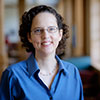This article is more than 5 years old.
Across seven days in May, I traveled to three state-level meetings. Here’s a miscellaneous compilation of lessons learned and other musings.
Carolina Consortium
The Carolina Consortium negotiates advantageous group deals for e-resource purchases. Besides hearing about deals to possibly join, I picked up a few practical tidbits specific to my department. I learned of one e-journal platform migration that I didn’t know about (link checking ensued). I also found out that the Ivy Plus colleges couldn’t reach an agreement with a particular e-book vendor due to bad (and inflexible) license terms – so we won’t try this one ourselves anytime soon.
NCICU Library Resources Group
This meeting of reps from NC private schools occurred the day after and only two miles away from the Carolina Consortium meeting – convenient for far-flung folks attending both meetings. I heard an update from a deep collaboration group that they’re trying to get going (inspired by PALNI in Indiana). Julie James from CCCL is on the steering committee.
Claire Leverett from NC LIVE gave a general update and also mentioned a nascent statewide network for developing OERs. Stay tuned.
During a break, another attendee who is a WFU alum expressed how delighted she was to receive a handwritten, non-canned thank-you note from a current WFU student after she recently donated money to ZSR. She said it was more meaningful than the letter she received from Tim P. (Sorry Tim!) She intends to copy this idea at her own library. Meanwhile, I think we should keep the good work of our student letter writers!
NC LIVE Annual Meeting
A speaker’s recommendation of a book with “DNA” in the title prompted me to check our catalog for books that imply you can change or improve your metaphorical DNA by applying the lessons of a how-to book. To see many amusing examples, look in our H section. There’s one more good example in the L section.
A public librarian mentioned that their teen room is used exclusively by middle schoolers. So to update our terminology matrix….
- Teen=11-13
- Young Adult=14-17
- Adult=porn
This terminology trouble has implications for ZSR since I’ve been wondering about tools and shortcuts for collecting popular reading that particularly appeals to adults aged 18-25. The colleagues at this breakout session introduced me to the term “New Adult Fiction.” But a rudimentary Google search reveals that this term hasn’t completely caught on. The matches in LISA variously refer to the 18-25 set, adults just learning to read, or recently published books for adults. Sigh.
There was also a session on collaborative monograph retention. I think there’s a broad consensus in favor of the idea (at least among the self-selected group that attends sessions like this), but so far not so much action.

4 Comments on ‘May Meeting Musings’
Entertaining writeup
Awesome alliterations are always appreciated.
Carol, I read a fair amount of NA (new adult) — especially NA fantasy. I’d love to chat more with you about it! 🙂
Thanks for the recap for each meeting, Carol!
Great report and thanks for sharing about the thank you notes which Sophie and Stephen coordinated!